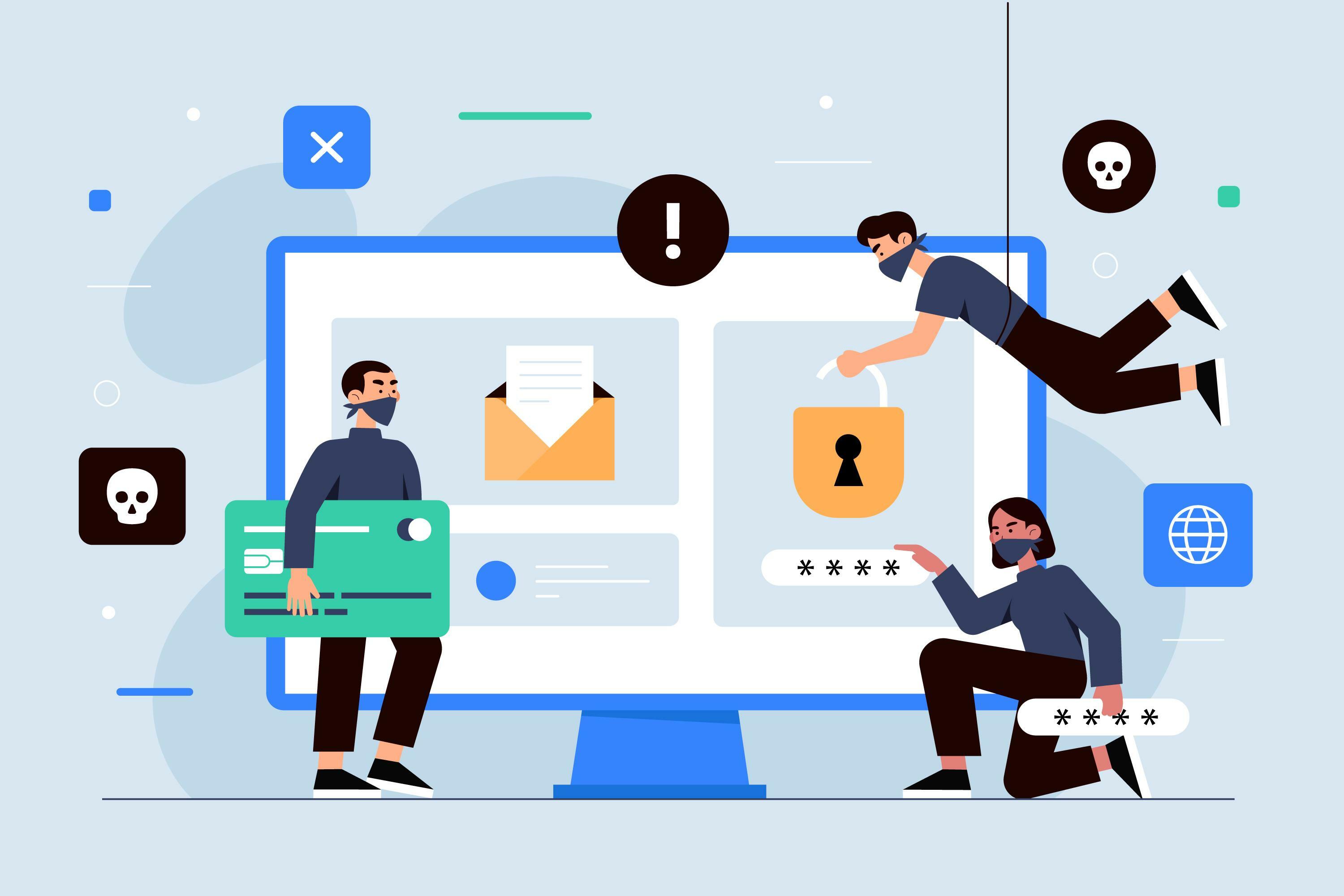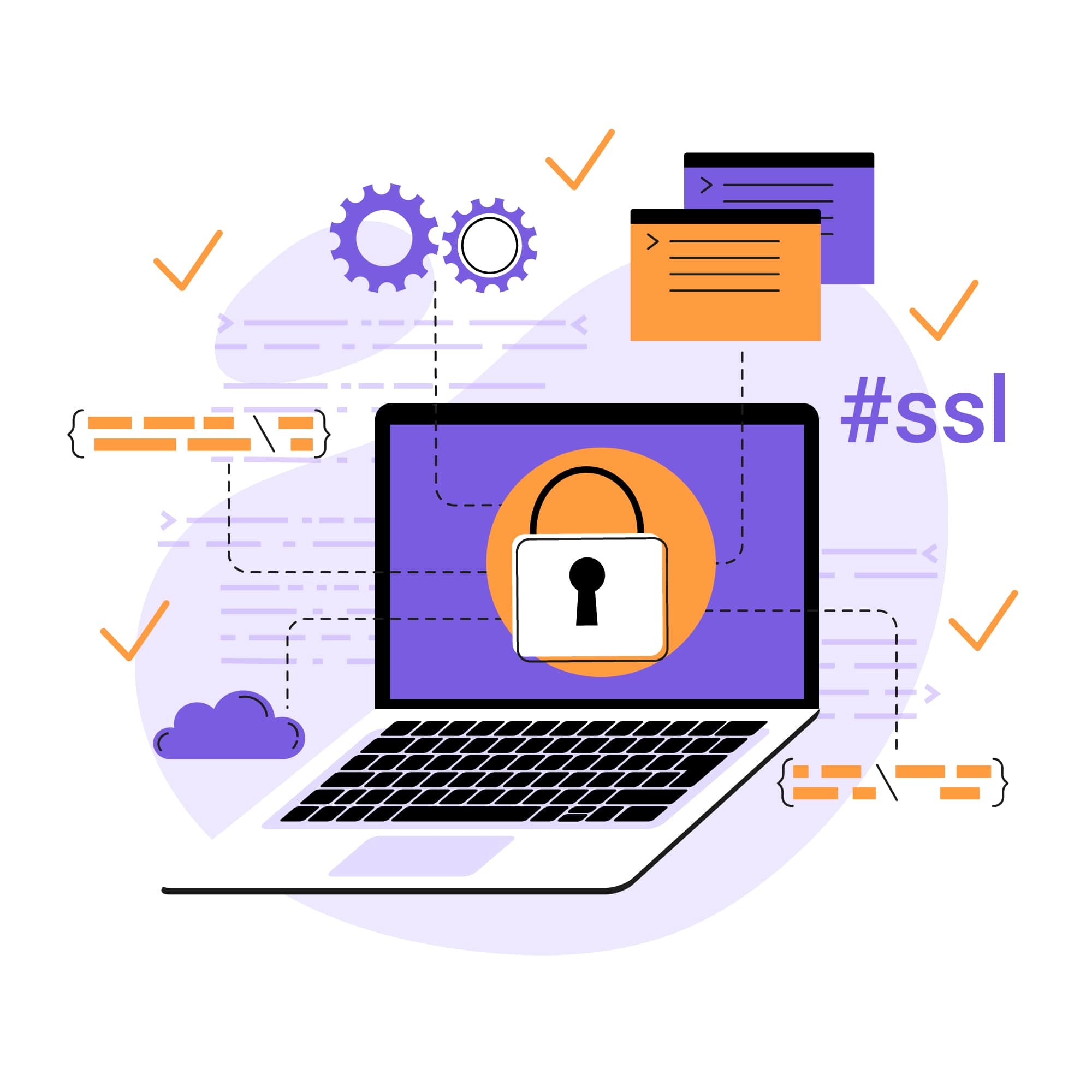
Website Security Definition & How to Keep Your Site Protected
You’ve launched your website and done all you can to ensure its success, but you may have overlooked a critical component: website security. Cyber-attacks are very common for sites that don’t have the proper security measures in place and can cause costly clean-up, damage your reputation, and discourage visitors from coming back.
Fortunately, you can prevent it all with effective website security. We’ll discuss what website security means and what solutions will help ensure your site isn’t taken down by a cyberattack.
What is website security?
Website security is any action taken or application put in place to ensure website data is not exposed to cybercriminals or to prevent exploitation of the website in any way. These actions help protect sensitive data, hardware, and software within a website from the various types of attacks that currently exist.
Implementing the proper security solutions will shield your site from the following security threats:
- DDoS attacks. These DDoS (distributed denial-of-service) attacks can slow or crash your site entirely, removing all functionality and making it inaccessible to visitors.
- Malware. Short for “malicious software,” malware is a very common threat used to steal sensitive customer data, distribute spam, allow cybercriminals to access your site, and more.
- Injection attacks. Involve inserting malicious code or commands into an application's input fields to manipulate its behavior or access unauthorized data. SQL injection (SQLi) and cross-site scripting (XSS) are the most common.
- Blacklisting. This is what could happen to your site if search engines find malware. It may be removed from search engine results and flagged with a warning that turns visitors away.
- Vulnerability exploits. Cybercriminals can access a site and the data stored on it by exploiting weak areas within the site, like an outdated WordPress plugin.
- Defacement. This attack replaces your website’s content with a cybercriminal’s malicious content.
Putting website security best practices into place will protect your visitors from these common risks as well:
- Stolen data. From email addresses to payment information, hackers frequently go after visitor or customer data stored on a site.
- Phishing schemes. Phishing doesn’t just happen in emails. Some attacks take the form of web pages that look legitimate but are designed to trick the user into providing sensitive information.
- Session hijacking. Some cyberattacks can take over a user’s session and force them to take unwanted actions on a site.
- Malicious redirects. Certain attacks can redirect visitors from the site they intended to visit to a malicious website.
- SEO Spam. Unusual links, pages, and comments can be put on a site to confuse your visitors and drive traffic to malicious sites.
Why businesses need to invest in cybersecurity
There are four main reasons why every website needs proper protection from security risks.
Website owners are responsible for the site security — not hosting providers
Hosting providers protect the server your website is on, not the website itself. You can think of the website-host relationship like an apartment building: management provides security for the whole building, but it’s up to each occupant to lock their door.
Avoid costly cyberattacks
It’s cheaper than a cyberattack. Cyberattacks can cost small businesses as much as $427 per minute of downtime. By contrast, SiteLock customers pay an average of $1-2 per day for a full website security plan.
Protect brand reputation
You’ll protect your reputation and retain visitors and/or customers. An estimated one in four Americans will stop doing business with a company that has experienced a data breach. That’s a devastating number of customers to lose for large and small businesses.
Detect malicious activity before it becomes a problem
Malware and cyberattacks can go undetected if you’re not careful. Cybercriminals specialize in malware that can discreetly enter a site and stay hidden, so there may be an infection without the site owner even knowing.
Some sneaky malware attacks include backdoor attacks, a type of malware that allows someone to access a site without the owner’s knowledge, or cryptojacking, which mines a site for cryptocurrency without showing any symptoms. These types are increasingly common: in 2022, 32% of infected websites had a backdoor attack, and cryptojacking continues to rise in popularity, increasing 23% in the first half of 2021 compared to the previous year. Once a hacker secretly enters your website, they can access your data, steal traffic, deploy phishing schemes, and more without you even noticing.
What do I need to keep my website secure?
Whether you have a brand new business and are looking for website security solutions to deploy or have an existing site and are looking to improve security on it, there are a few basics to consider putting in place.
Login authentication
Strong passwords and MFA (multi-factor authentication) are crucial for safeguarding personal and sensitive information in today's digital landscape. Strong passwords, consisting of a combination of letters, numbers, and special characters, make it significantly harder for hackers to crack into users’ accounts.
MFA adds an extra layer of security by requiring users to provide multiple forms of identification, such as a password combined with a fingerprint scan or a unique code sent to a mobile device. This additional step significantly reduces the risk of unauthorized access, even if a password is compromised.
SSL certificate
SSL/TLS certificates protect the sensitive data collected by your website, like emails, addresses, and credit card numbers, as it is transferred from your site to a web server. This is a basic website security measure, but it’s so important that popular browsers and search engines label sites without an SSL as “insecure,” which can make visitors suspicious of your site and oftentimes influence them to leave. Depending on the functionality of your site and the types of personal information that are requested (e.g., eCommerce, financial, etc.), you’ll want to choose an SSL certificate that’s the best fit for your business.
Remember that SSLs only protect data in transit, so you’ll need to take further steps for a fully secure website.
Web application firewall (WAF)
A WAF prevents hackers from installing malicious code onto a site and stops automated attacks that commonly target small or lesser-known brands. These attacks are carried out by malicious bots that automatically look for vulnerabilities they can exploit or cause DDoS attacks that slow or crash your website.
Website scanner
A cyberattack costs more the longer it takes to be found, so time is of the essence when a site experiences an attack. A website scanner automatically looks for malware, vulnerabilities, and other security issues and then works to remove them immediately or flags them so you can mitigate them appropriately.
SiteLock’s scanners not only deploy fixes to remove known malware but they also look for cyber threats on a daily basis. They let you know in real-time the moment anything is found, reducing the amount of damage it can do to your site.
Content delivery network (CDN)
A CDN is a network of servers that speeds up web content delivery by serving it from servers closer to users. CDNs also help with web application security and DDoS protection by distributing traffic across multiple servers, mitigating the impact of attacks, and ensuring websites remain accessible.
Software updates
Websites hosted on a content management system (CMS) are at a higher risk of compromise due to vulnerabilities and security issues often found in third-party plugins and applications. These can be prevented by installing updates to plugins and core software in a timely manner, as these updates often contain the security patches that are currently needed. An automatic patching solution makes this even easier.
While CMS security plugins can enhance website security, they aren't always reliable due to potential vulnerabilities, compatibility issues, and the evolving nature of cyber threats, leaving websites susceptible to attacks even with their presence.
How SiteLock security tools can help
SiteLock makes website security easy and affordable with automated solutions that are easy to install and plans that work for your budget. These solutions offer website scanning with automatic malware removal, a WAF solution, automated software patching, and more. We can also assist you in choosing an SSL certificate, too.
If your site's security has already been breached, see SiteLock's hacked website repair services immediately.





